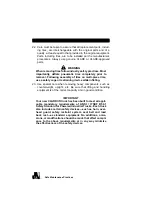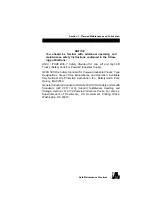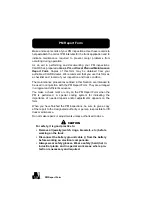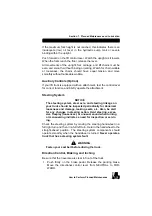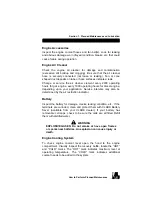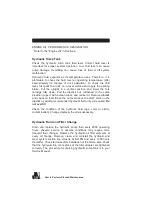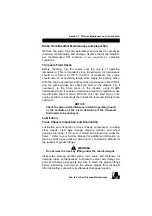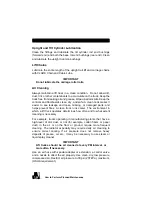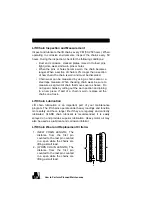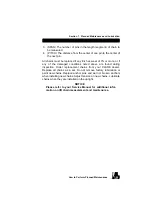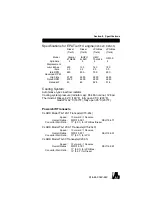
How to Perform Planned Maintenance
7-19
Section 7. Planned Maintenance and Lubrication
If the maximum fork height is not reached, this indicates there is an
inadequate (low) oil level in the hydraulic sump tank or severe
binding within the upright.
Push forward on the lift control lever. Watch the upright as it lowers.
When the forks reach the floor, release the lever.
All movements of the upright, fork carriage, and lift chains must be
even and smooth, without binding or jerking. Watch for chain wobble
or looseness; the chains should have equal tension and move
smoothly without noticeable wobble.
Auxiliary Controls (Option)
If your lift truck is equipped with an attachment, test the control lever
for correct function and briefly operate the attachment.
Steering System
NOTICE
The steering system, steer axle, and steering linkage on
your truck should be inspected periodically for abnormal
looseness and damage, leaking seals, etc. Also, be alert
for any changes in steering action. Hard steering, exces-
sive freeplay (looseness), or unusual sound when turning
or maneuvering indicates a need for inspection or servic-
ing.
Check the steering system by moving the steering handwheel in a
full right turn and then in a full left turn. Return the handwheel to the
straight-ahead position. The steering system components should
operate smoothly when the handwheel is turned.
Never operate a
truck that has a steering system fault.
WARNING
!
Fasten your seat belt before driving the truck.
Direction Control, Braking, and Inching
Be sure that the travel area is clear in front of the truck.
1. Push firmly on the brake pedal. Release the parking brake.
Move the directional control lever from NEUTRAL to FOR-
WARD.
Summary of Contents for C15 D
Page 2: ......
Page 6: ...iv...
Page 16: ...1 4 Seat Belts Seat Belts ALWAYS BUCKLE UP Seat belts can reduce injuries...
Page 30: ......
Page 88: ...5 8...
Page 107: ...PM Report Form 7 13 Section 7 Planned Maintenance and Lubrication...
Page 124: ...7 30...
Page 142: ......
Page 143: ......


